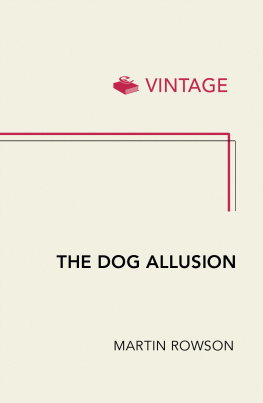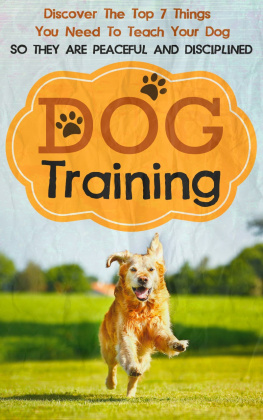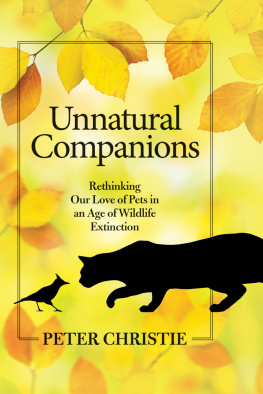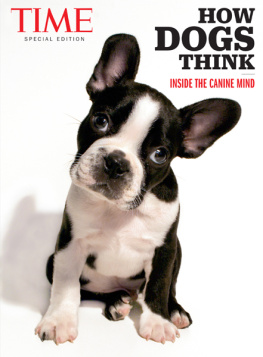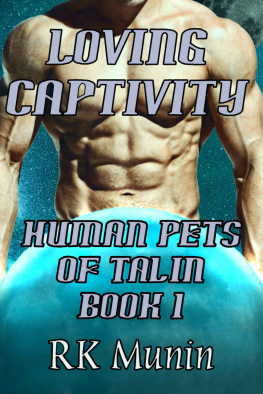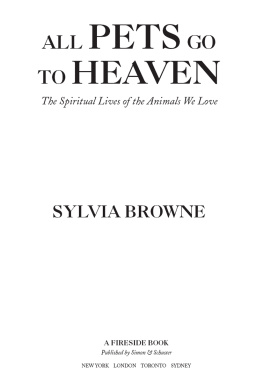Contents
About the Book
As with dogs, so with gods by and large, you should blame the owners.
A particular trait, common to all human civilisations, is the worship of non-human entities with followings of devotees who claim that their reverence can transport them to transcendental heights of complete and unfettered love.
Do we mean God? No we mean Dog. Dogs and other pets weve been keeping and loving since we began walking on two feet. But why do we love God and pets so much when their capriciousness sometimes suggests that they dont love us back?
In this wise, witty and highly topical book, celebrated cartoonist and novelist Martin Rowson argues that, rationally, the whole enterprise of religion is a monumental and faintly ridiculous waste of time and money. But then again, so is pet-keeping.
About the Author
Martin Rowson is an award-winning political cartoonist whose work appears regularly in the Guardian, the Independent on Sunday, the Daily Mirror, the Scotsman, the Spectator, the Morning Star, Tribune, Index on Censorship and The New Humanist. His previous publications include comic-book adaptations of The Waste Land and Tristram Shandy, and with Cape and Vintage a novel, Snatches, and a memoir, Stuff. Fuck: The Human Odyssey was published by Cape in October 2008. Martin Rowson is a former vice-president of the Zoological Society of London, a trustee of the Powell-Cotton Natural History Museum and an honorary associate of the National Secular Society. He lives with his wife and their two teenage children in south-east London.
Also by Martin Rowson
Scenes from the Lives of the Great Socialists
Lower than Vermin: An Anatomy of Thatchers Britain
The Waste Land
The Nodland Express (with Anna Clarke)
The Life and Opinions of Tristram Shandy, Gentleman
The Sweet Smell of Psychosis (with Will Self)
Imperial Exits (with Julius Cicatrix)
Purple Homicide (with John Sweeney)
Mugshots
Snatches
Stuff
Fuck: The Human Odyssey
For Basil, Ginger and Pansy,
and in loving memory of Sybil, Fosco, Templeton, Snowy,
Snowy II, Mandy-moo-moo and the rest of them,
all of whom died without receiving last rites.
empathyempe-thi, n. the power of entering into anothers personality and imaginatively experiencing his experiences: the power of entering into the feeling or spirit of something and so appreciating it fully.
Chambers Twentieth Century Dictionary
For what man in the natural state or course of thinking, did ever conceive it in his power to reduce the notions of all mankind exactly to the same length, and breadth, and height as his own?
Jonathan Swift, from A Digression on Madness
in A Tale of a Tub, 1704
Never obey orders, including this one.
Dr K. E. K. Rowson, MD, PhD, MRCS, LRCP, MB,
B.Chir., Dip.Bact. and MRCPath, mid 1970s.
Introduction
What follows is a considerably expanded version of a talk I originally gave on 15 March 2007 at a meeting of the Lewisham Humanist Group in an upper room at The Goose public house in Catford, South-East London. Its a pretty rough pub, but upstairs sat a small group of nice, kind, rather elderly people, numbering only slightly more than those who attended Jesus Christs Last Supper.
The talk went down pretty well, even though I spoke for over an hour, and I suspect that they were expecting something more in line with my day job as a political cartoonist. The next day I emailed my script to my agent David Miller, a theology graduate with whom Ive discussed religion and atheism at length since he first took me on in the summer of 2004. Despite his training, some of it at the hands of the former Dean of Trinity the Very Reverend John Bowker who once defined religions in the contemporary world as licenced insanities, Miller and I are pretty much of one mind as far as God is concerned. Given the current trend for books on the subject, he therefore sent the script to Dan Franklin at Jonathan Cape. Dans already published two other books of mine, and he passed the script on to his colleagues at Vintage.
That, in short, is the genesis of what you now have in your hands.
A month or so after Vintage had bought the idea, I was whoring one of those previous books at a literary festival, this being the service which is perfect freedom that all modern authors now enjoy or endure. Right at the end of the session someone asked what I was going to do next, so I answered that I was writing my God book, because everybody now had to write a God book. Mine, however, was at least in part taking a whack at Richard Dawkins and Christopher Hitchens as well as God. But as I was trying to articulate this, being only human I got slightly tongue-tied and Dawkins and Hitchens came out as Hawkins and Ditchens.
I liked that. The names suggested to me a firm of slightly old-fashioned gentlemens outfitters in somewhere like Ludlow, working away in their low-ceilinged, oak-panelled shop, with Hawkins, the more serious and senior of the partners, rolling out the yards and yards of sober, serious, tough and impermeable cloth. And Ditchens, rather shakily, would then cut the cloth to suit whatever his mood happened to be that day.
That said, as there now seems to be a priesthood of all unbelievers, and if a geneticist and a journalist can encroach territory outside their specific areas of expertise and have their say about religion, then its high time the satirists and cartoonists got in on the act too.
However, apart from the title, this book isnt a satire, although I hope youll find parts of it funny. Nor is it a work of scholarship, because Im no scholar. Nor am I a geneticist, a scientist, theologian, philosopher or anything else that might qualify me to add my bit to the ongoing and largely bogus debate between religion and atheism. I am, however, human like the rest of us, and the human element is something which has, so far, been conspicuously missing from the volleys fired by both sides.
Although this isnt a work of scholarship (theres no index, for a start), it is the result of me absorbing the thoughts and ideas of many other people, as youll probably notice, although I dont think this particular synthesis of those ideas has been presented in quite this way before. If it has, I can only apologise and make an insincere promise to widen my reading. The books also meant to be playful, rude, sweepingly generalising, discursive and often digressive, as well as serious. This is an approach which I think fits the subject perfectly.
Finally, while not wishing further to try your patience before the main attraction, Id like to thank the following people: Denis Cobell and everyone at the Lewisham Humanist Group for their hospitality and patience; David Miller and Hannah Westland at Rogers, Coleridge and White; my editors Ros Porter and Frances MacMillan at Vintage and everyone else at Random House who helped in the production of this book; Francis Wheen; Rosemary and James Furber; Malcolm Guite; the late Dr Robert Buttimore; Neil and Martin Simpson; Posy Simmonds; Laurie Taylor; Caspar Melville of New Humanist and Chris McLaughlin of Tribune, in whose pages some of the ideas in this book first appeared; my wife Anna Clarke and our children Fred and Rose Rowson; Rory Hodgson; and finally, obviously, my pets, who made no contribution to it whatsoever, beyond the central role I describe for them in the main body of the text.
Next page
